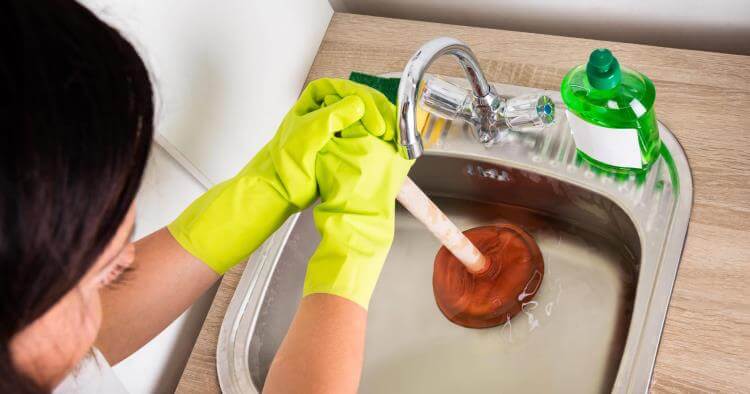Understanding the Science Behind a Clogged Sink: Insights and Solutions

A clogged sink is a common household nuisance that can disrupt daily routines and lead to frustration. While it may seem like a simple inconvenience, understanding the science behind a clogged sink can provide valuable insights into why it occurs and how to effectively address the problem. In this article, we’ll explore the underlying science of sink clogs, including the causes, mechanisms, and solutions.
The Science of Sink Clogs
Causes of Sink Clogs
Sink clogs can be caused by a variety of factors, including:
- Food Debris and Grease: In kitchen sinks, food scraps, grease, and oil can accumulate over time and form a sticky residue that traps other debris and impedes water flow.
- Hair and Soap Scum: In bathroom sinks, hair, soap scum, and toothpaste residue can build up inside the drain and create stubborn blockages that restrict water flow.
- Mineral Deposits: In areas with hard water, mineral deposits such as calcium and magnesium can accumulate inside the pipes, narrowing the diameter of the drain and causing clogs.
- Foreign Objects: Occasionally, foreign objects like jewelry, bottle caps, or children’s toys can accidentally fall into the sink drain and become lodged, resulting in blockages.
Mechanisms of Sink Clogs
Sink clogs occur when debris accumulates inside the drain pipe, restricting the flow of water. This buildup can occur gradually over time, as small particles adhere to the walls of the pipe and trap other debris. As the clog grows larger, it becomes more difficult for water to pass through the pipe, resulting in slow drainage or a complete blockage.
Solutions for Sink Clogs
There are several solutions for addressing sink clogs, including:
- Boiling Water: Pouring boiling water down the drain can help dissolve and dislodge minor clogs caused by grease, soap scum, or food debris.
- Baking Soda and Vinegar: A mixture of baking soda and vinegar can help break down organic matter and clear clogs. After pouring the mixture down the drain, allow it to sit for several minutes before flushing with hot water.
- Plunger: Using a plunger can be highly effective for dislodging stubborn clogs in both kitchen and bathroom sinks. Ensure that you create a tight seal around the drain before plunging and use quick, forceful movements to generate pressure.
- Plumbing Snake or Auger: For more severe clogs, a plumbing snake or auger can be used to manually remove the blockage. Insert the snake into the drain and rotate it until you encounter resistance, then crank the handle to break up the clog.
Preventive Measures for Sink Clogs
Proper Disposal of Debris
To prevent clogged sink, it’s important to dispose of food scraps, grease, and other debris properly. Avoid pouring large quantities of food or grease down the drain, and use sink strainers to catch solid particles before they enter the pipe.
Regular Maintenance
Performing regular maintenance on your sink can help prevent clogs from occurring. This includes flushing the drain with boiling water or a mixture of baking soda and vinegar on a monthly basis to remove buildup and keep the pipes clear.
Professional Inspections
Schedule periodic inspections by a licensed plumber to check for any underlying issues with your plumbing system and address them before they escalate into major problems. A professional plumber can identify potential clogs or damage and recommend appropriate solutions to prevent future issues.
Conclusion
Understanding the science behind a clogged sink can provide valuable insights into why it occurs and how to effectively address the problem. By identifying the causes and mechanisms of sink clogs, you can implement appropriate solutions to prevent them from occurring in the future. Whether it’s using DIY methods like boiling water or baking soda and vinegar, or seeking professional assistance from a licensed plumber, addressing sink clogs promptly is essential for maintaining a functional plumbing system and preventing further damage. With the right knowledge and preventive measures in place, you can keep your sinks clear and your plumbing system running smoothly for years to come.


